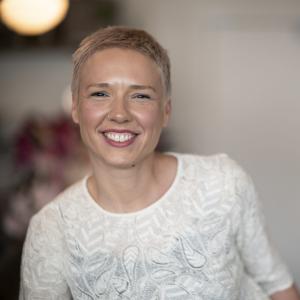The course consists of 22 online evening sessions (Thursdays 6.30pm to 8.30pm), one 2 hour mid-course check in, and 6 half-day sessions (Saturdays 1.00pm to 4.00pm). Times are either in AEST or AEDT depending on dates. Please convert the times if you live outside of this time zone.
2025 Dates
Session 1: Thursday 24 July – Vivian Pham & Emily Bitto
Introduction: Meet your tutors and discuss your ambitions for the course. Why do you write? What is the yet-unwritten novel you want to read? What does the world look like with your book in it?
Session 2: Thursday 31 July – Vivian Pham
Premise and Genre: In this workshop we will consider the unique characteristics of each genre, how they meld together, and the novels that successfully bend the rules.
Session 3: Thursday 7 August – Viviam Pham
The Elements: A basic, sturdy overview of what writing a novel involves.
Session 4: Saturday 9 August – Vivian Pham
Character: The aim of this week is to flesh out our characters to the point that we can see their nose hairs. We will mine for the microscopic details that make someone unique.
Session 5: Thursday 14 August – Emily Bitto
Story, structure, plot: What are the different types of plot? Do you even need one? How do you maintain intensity and momentum with varied pacing? How do you find the right structure for your novel? While plot is related to structure the two operate independently, so consideration will also be given to the ways in which they should both support and develop the other.
Session 6: Thursday 21 August – Vivian Pham
Plot: In this week we consider the driving force behind a plot, as well as the basic requirements of a page-turner: moments of suspense, discovery and recognition.
Session 7: Thursday 28 August – Emily Bitto
Scene and summary: What is the difference between scene and summary? What is the function of each in your novel, and how do they work on the page?
Session 8: Thursday 4 September – Vivian Pham
The Pitfalls of Point of View: Many writers believe that deciding which point of view you tell your story from affects everything that happens in it. In this week we discuss the different narrative viewpoints, as well as the virtues and drawbacks of each.
Session 9: Saturday 6 September – Emily Bitto
Voice and Psychic Distance: What is meant by the term ‘voice’ in relation to the novel? What is the voice and tone of your novel? What are the possibilities and impacts of the choices you could make in relation to the level of ‘closeness’ or ‘distance’ from the inner voice/s of your character/s? How can you consciously decide on and create the tone and voice of your novel?
Session 10: Thursday 11 September – Emily Bitto
Handling Time: Flash-back, flash-forward and everything in between. How to handle the passage of time in your narrative on both the plot- and scene-level. Different ways to incorporate back story and to handle transitions between time periods.
Session 11: Thursday 18 September – Vivian Pham & Guest
Guest author session: Writing insights and tips on how to continue your practice over the break.
Session 12: Thursday 25 September – Vivian Pham
Writers on Writing: In this week we look at different approaches to writing, experiment with practical exercises, and build our own personal regime.
COURSE BREAK
Session 13: Thursday 16 October – Vivian Pham
The Gears of Storytelling: In this week we consider pacing, momentum, and the experience of time within the story.
Session 14: Saturday 18 October – Vivian Pham
Imagery and symbolism: This week we focus on recognising the layers of meaning embedded in our novel and how to translate this into imagery and symbolism.
Session 15: Thursday 23 October – Vivian Pham
How to Say Goodbye: In this session we explore how to end a novel.
END OF YEAR BREAK
Mid-break check-in session: Thursday 4 December 2024 6:30pm – 8:30pm
2026 dates
Session 16: Thursday 5 February – Vivian Pham
How to save your darlings: This week we give practical advice on how to process and respond to feedback and make the most out of a gruesome edit.
Session 17: Saturday 7 February – Vivian Pham
Structural Edit Part 1: Opening Doors
Session 18: Thursday 12 February – Vivian Pham
Structural Edit Part 2: Keeping the Door Open
Session 19: Thursday 19 February – Vivian Pham
Structural Edit Part 3: Closing Doors
Session 20: Thursday 26 February – Vivian Pham
Line Edit: What Novelists Can Learn From Playwrights, Screenwriters and Poets
Session 21: Thursday 5 March – Vivian Pham
Shading With Tonal Shifts: This week we consider the tone of important scenes in our novel and how to add complexity and emotional depth by using tonal shifts.
Session 22: Thursday 12 March – guest tutor Miles Allinson
Research, ethics, writing from life: Writing fiction has freedoms, but also some responsibilities. A consideration of some ethical issues raised by drawing on real events or real people’s lives in your work.
Session 23: Saturday 14 March – Emily Bitto
Getting to the end and where to next: This session will address a range of topics such as submitting to literary journals, manuscript prizes, agents and publishers, as well as who to get to read your draft, the pros and cons of manuscript assessments, and options for further study in creative writing. We’ll also revisit your initial planning documents from the first week of the course.
Session 24: Thursday 19 March – Vivian Pham
The Art of the Pitch: This week we develop the skill of condensing our novel into a pitch that packs a punch, and what differentiates the pitch from the synopsis and the pitch.
Session 25: Thursday 26 March – Vivian Pham
Workshopping Intensive
EASTER BREAK
Session 26: Thursday 23 April – Vivian Pham
Editor Guest Appearance
Session 27: Thursday 30 April – Vivian Pham
Literary Agent Guest Appearance
Session 28: Saturday 9 May – Vivian Pham
Final workshopping and celebration
All sessions are held online on Zoom. The exact course content could be adjusted according to the experience and concerns of the group and availability of guest writers. The detail of the course is at the discretion of the Course Director and Faber Writing Academy at Allen & Unwin.






